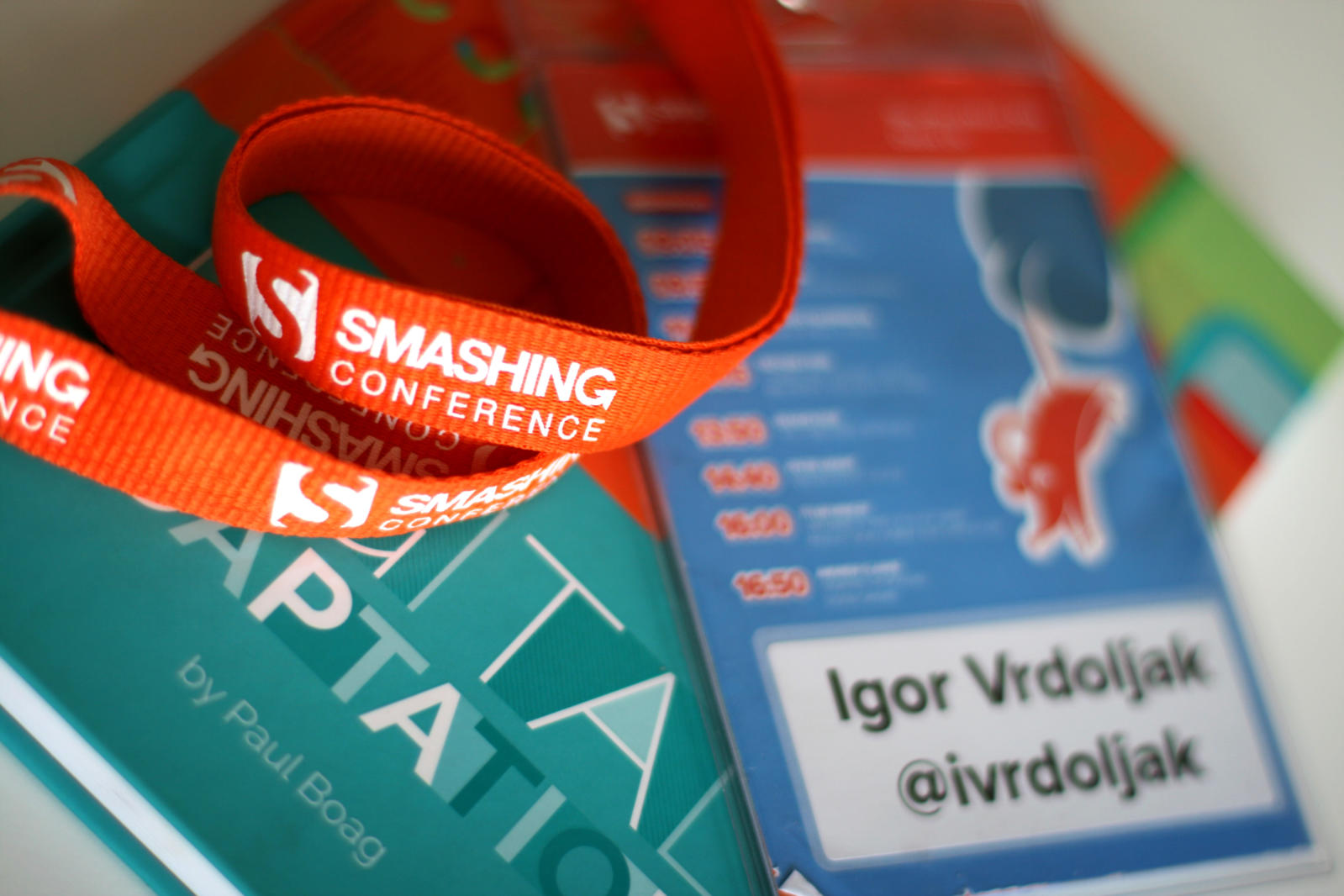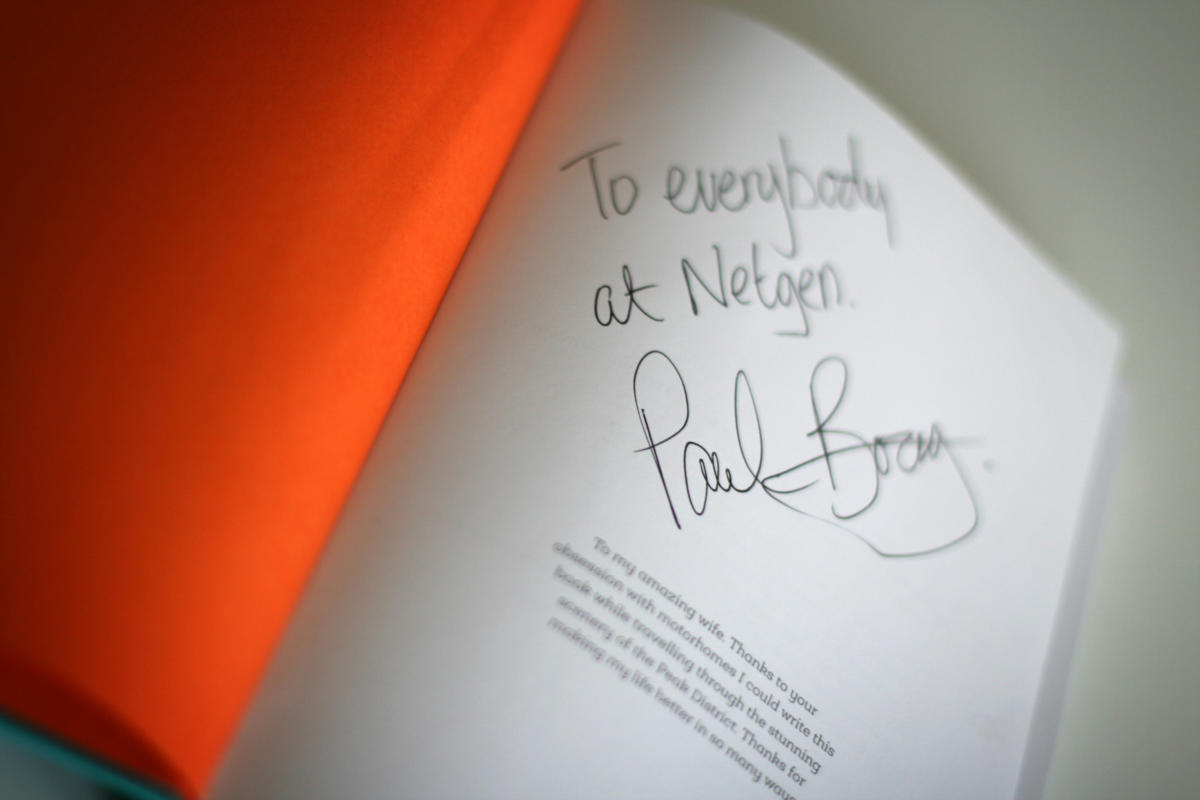Ever since Vitaly Friedman announced that last years’ Freiburg event is to be reenacted and the speakers lineup started to form, it was clear the event would be, pun intended, smashing. The lovely city of Oxford was chosen for the venue so it was even harder to say no to such a chance to learn and meet.
Two weeks ago, I attended the Smashing Conference Oxford 2014, one of the hottest events of the European web design/development conference season. Ever since Vitaly Friedman announced that last years’ Freiburg event is to be reenacted and the speakers lineup started to form, it was clear the event would be, pun intended, smashing. The lovely city of Oxford was chosen for the venue so it was even harder to say no to such a chance to learn and meet.
The lineup & talks
With names like Paul Boag, Andrew Clarke, Addy Osmani, Lea Verou, and a lot of others, it was pretty obvious that the speaker quality was the backbone of the conference. Some of those people had, through blog posts and podcasts, greatly influenced the way I approach web design and development as well as client relations and web business in general, so it was a real privilege to see them speak. The talks covered a wide range of topics related to the web industry, from the more organic ones, such as psychology and adaptation to the digital world, to more technical, such as flexbox and responsive email details. It is really hard to single out the best ones.
That being said, my favorites of the first day were Addy Osmani, who gave us a glimpse of the next generation of web development with web components, and Paul Boag’s talk that touched on the deep change that the web brings to organizations and our responsibilities, as web professionals, to help our clients adapt and prosper. As I have listened to Paul’s podcast for some years now (great stuff, check it out at http://boagworld.com), it is not a surprise that his subtle persuasion techniques also succeeded in making me buy his book. Heck, at least I got Paul to sign it for us!
As for Addy’s presentation it was a real inspiration to see a new development paradigm of using custom web components as powerful building blocks for web pages, and all this available even today thanks to the Polymer project. Since web components cover an entire range of emerging web standards, it is too big of a topic to cover in this blog post and I urge you to take a look at the presentation slides and the recorded video when it becomes available. Additional information can easily be found; for starters, you can check out the Chris Coiyer's article or Eric Bidelman's presentation from last year’s Google I/O.
The second day gave us more great talks, as the day started with the Mystery Speaker’s presentation. It turned out to be Jon Hicks who gave a talk on the icon design process. Following right after was the presentation by Scott Kellum of Vox media, addressing the problem of creating art directed articles on sites such as The Verge, Polygon and SB nation. We at Netgen have been working on the same issues for some time now, so it was great to see the experience of a big publishing company dealing with the same problems and coming up with the similar solutions. Another blog post on this is brewing, keep tuned. Also, filling in for Peter Smart’s presentation, Marko Dugonjić stepped in with a great talk on responsive web typography. We have been working with Marko on multiple projects for quite some time now and it was nice to see him on the stage.
The last presentation, done by Andrew Clarke, was a thing of its own. Done without the help of the slides on widescreen, it was an inspirational glimpse on web design today and the challenges it, with its growing complexity, brings to the table. I think that almost everybody felt inspired and rejuvenated by Andrew’s words (I know I was), and it seems the applause was just a little bit stronger and longer afterwards.
If you have a few minutes (and you should), Mr Clarke published a post on Smashing Magazine and you should read it.
Most of the presentations from the conference are available on Lanyrd. Check them out, there are some real gems there, and certainly not only the ones that I have mentioned.
Networking and people
As with all such events, equally important as the presentations on the stage were the chances to meet and talk with peer designers / developers / web people over a cup of coffee or a pint of beer. The guys and gals from Smashing conference made sure we had enough opportunities to do just that.
The event itself started with a jam session in a small tavern just opposite the conference venue. Over some beers, and with quick talks presented by the attendees of the conference, it was easy to get the conversation running. The first day of the conference ended with a bigger, official party at Freuds cocktail bar, and it was another great opportunity to talk in a more relaxed atmosphere.
At Netgen, we specialize in CMS implementations and certain types of web projects, and I find it refreshing to take some time to get a broader view of the web landscape and to talk with people who work in the same industry but come from a different background. My impression is that, no matter the differences, we all share most of the issues and everyday problems. The speed of the changes enforced on all of us and the issues with clients who find those changes even harder to follow and that look up to us to show them the right way are some of these challenges, and the more people try to solve them with different approaches, the faster we will come up with solutions that will benefit the whole industry.
Conclusion
The Smashing Conference was smashing in every aspect, indeed.
The talks, the venue, and the crowd made it a unique experience and it was great to see the progress that web, as a platform we all build our businesses on, is making. The sheer speed of innovation and everyday changes is overwhelming, and one thing is for sure - we are not going to be bored for quite some time.
And yes, we also had lasers (kudos go to Seb Lee-Delisle).

